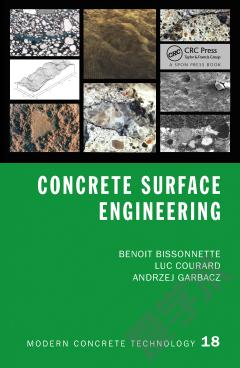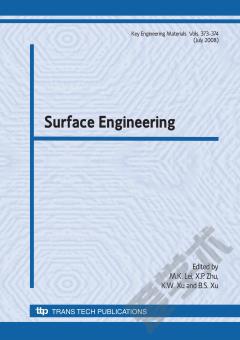Concrete Surface Engineering
Applying any material to an existing concrete surface intrinsically entails the development of a bond. Considering the ever increasing importance of concrete repair and protection, which imply the creation of an interface between two materials, an improved knowledge of concrete surface characteristics is paramount. Surface engineering, which has evolved from the world of metallurgy, addresses all surface-related considerations, notably adhesion. It provides a fundamental understanding of what will make the contact between two materials effective or not, allowing for interactions of variable intensity. It also comes with a variety of scientific tools for characterizing the quality of the substrate, the properties of the new material layer and their interface. In the case of concrete surface treatment, this is especially important for achieving lasting results. This book addresses the essentials of concrete surface engineering in view of a wide variety of concrete surface treatments, from protective coatings to repairs. It provides a leading-edge source of information for practicing engineers, architects, repair specialists, and researchers on the following topics: Surface engineering principles applied to concrete Methods and techniques for assessing concrete surface characteristics Fundamentals of adhesion between concrete and surface repairs/treatments Compatibility requirements for concrete surface repairs/treatments Review of surface preparation techniques available for concrete Achievement and appraisal of bond between existing concrete and surface repairs/treatments Beno卯t Bissonnette is professor of civil engineering at Laval University in Quebec City, Canada. Andrzej Garbacz is professor of building materials engineering in the Department of Building Materials Engineering at the Warsaw University of Technology in Poland.
{{comment.content}}








 京公网安备 11010802027623号
京公网安备 11010802027623号